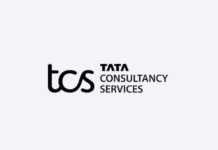Individuals and corporations are increasingly finding themselves in the taxman’s bad books. Tax payment is a statutory obligation for any revenue-generating activity, and fulfilling your tax obligations ensures your business is compliant. Beyond these legal requirements, a genuine business has an online footprint and can be found if the need arises.
The Taxation Policy ‘Advantage’
Although there are several tax loopholes and provisions for tax exemptions, most tax issues still revolve around tax fraud. Thousands of tax fraud cases go through legal channels yearly, with governments coming down hard on tax offenders.
The big debate continues to center around willful negligence versus unintentional tax fraud. Is it possible to be a victim of tax fraud without even knowing it? What does tax fraud mean, and what are some ways you could be enabling tax fraud even without your knowledge?
What is Tax Fraud?
Tax fraud happens when an individual or a business unit willfully and deliberately makes false assertions on a tax filing to reduce the tax liability or evade the tax payment entirely. Tax fraud and tax evasion are sometimes used interchangeably, although tax fraud is often considered a collective term for tax evasion and other illegal tax-related activities.
Unintentional Tax Fraud
Not every tax fraud is a high-level procedure involving tax havens and offshore accounts. You’ve likely committed tax fraud without knowing it in some of the following forms:
1. Missing or Inaccurate Information
You might risk a tax audit if you fail to include even a few details or figures. For example, if you paid a certain amount for tuition, you might be eligible for a tax refund, and most people are tempted to adjust such figures upwards to benefit from a higher refund.
Capital investments in business may also qualify for a tax rebate or exemption; some business people are tempted to overstate these amounts. Always include every detail in your tax filing to avoid being on the wrong side of the law. Remember your personal information can be retrieved on government databases and even on people-search sites, for example, Nuwber. So, verifying the details you provide these days is not so hard but is very important.
2. Overstating Expenses
High expenses in a business entity result in a smaller taxable figure. Some expenses may be overstated in a company’s income statement to give the illusion of low earnings. This is prevalent among sizeable businesses which have multiple recurring expenses. Some personal expenses may willfully be treated as business expenses while actual business expenses are misstated.
Overstating business expenses is a prosecutable action that may lead to an extensive audit of your books. Any discrepancies in the treatment of expenses may attract fines or even jail time for the people involved.
3. Failure to File Your Tax Returns
Research from government tax institutions shows that billions in tax revenue are lost annually from individuals and businesses who fail to file their returns. Failure to file tax reports is considered a form of tax fraud as it is a willful failure to comply with legal requirements.
Tax authorities usually provide a checklist of the necessary infrastructure to file taxes, including ETR machines. All registered businesses must have a tax account irrespective of the scale of their operations. Intentional disregard of these requirements is legally a form of tax fraud and can attract penalties.
4. Mislabeling Your Expenses
In many tax fraud cases, company executives intentionally label cash outflows as non-business spending. Charity organizations are the main vehicle for this type of tax fraud where a business highlights some outflows as donations, yet the business received some form of compensation.
If, for example, a business entity has donated finished products or labor and received indirect benefits that create profitable opportunities, this is tax fraud. Honesty is always the best policy in direct dealings with the government. There is much more to gain from honest dealings than the potential downside of cutting corners in tax filings.
5. Inefficient Accounting Procedures
Failure to observe proper accounting standards is a business offense and a potential tax offense. If a business makes tax filings based on improperly prepared financial statements, the tax liability stated is often grossly understated. Accountants may collude to keep scanty books with minimum or adverse reporting.
Though a few individuals may carry out these activities within the organization, the entire organizational structure is held responsible. As a business owner or director, you are responsible for ensuring all the financial records are accurate and up to date. Furthermore, proper financial records give the business a positive reputation in the business community.
6. Setting Up a Shell Company
Although shell companies are not entirely illegal, they have gotten a bad rap as conduits in tax fraud. Shell companies usually exist on paper, as they have no registered location or assets. One might set up a shell company to handle a separate part of the business with proper legal procedures.
However, some businesses and individuals use shell companies exclusively as fronts for tax evasion. Some expenses and acquisitions are written off as the shell company’s operations registered in a tax haven. If you have a registered shell company ensure all the transactions attributed to it have actually occurred.
7. Concealing assets
Concealed assets are deliberately hidden away from a company’s official records. Business assets are typically acquired to generate revenue for a business. However, hidden assets imply a hidden revenue stream not accounted for in a company’s official asset list. In addition, certain expenses related to concealed assets may be labeled as unrelated tax-deductible expenses. This leads to a multi-stage tax fraud that could severely affect a company’s financial and legal stability.
Any asset-related expenditures or incomes should be consolidated in a company’s comprehensive report. Companies that own subsidiaries and part ownerships in other businesses must state all incomes earned from these external activities.
Conclusion
Tax fraud is a widespread institutional problem that affects governments, businesses, and individuals. The potential ramifications of tax fraud have far-reaching consequences for millions of households, both directly and indirectly. Everyone must follow tax procedures and legal provisions to ensure all the stakeholders carry out their operations smoothly.








